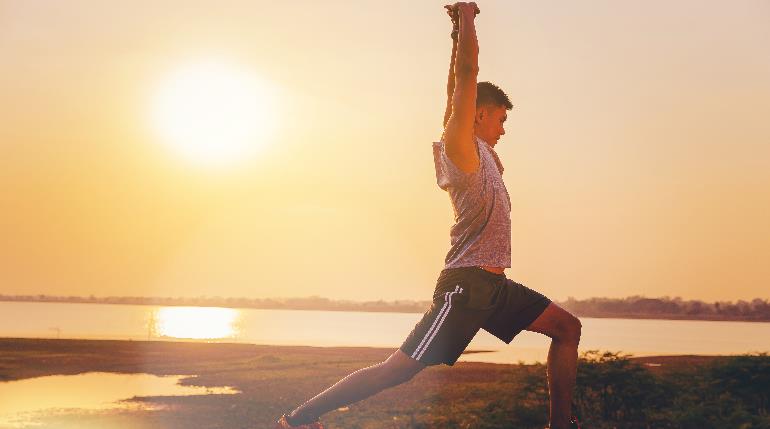
Running makes for a great cardiovascular workout. It floods the body with endorphins and feel-good hormones that act as a natural stress buster. While running has a list of health benefits, it also tires the body and is taxing for a few muscle groups such as, the hamstrings, hip flexors, quads, feet and calves. If not reversed, overtime, this can trigger irreversible injuries to the muscles and joints.
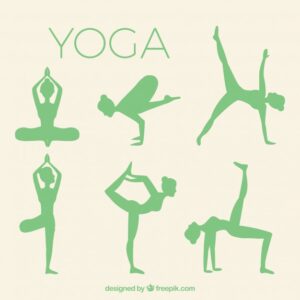 At Wellintra, we often receive inquiries from marathon runners wanting to know if Yoga benefits runners and athletes in anyway. Our answer to them is always, Yes.
At Wellintra, we often receive inquiries from marathon runners wanting to know if Yoga benefits runners and athletes in anyway. Our answer to them is always, Yes.
Regular practice of yoga helps marathon runners and athletes in re-establishing balance, lengthening muscles, realigning and stabilizing joints, strengthening postures to help the body cope with exertion, and the strain on the muscles while running. Yoga includes physical, mental and emotional health benefits that help reset the body. An effective example would be that of rebooting a computer. It allows the body to prepare for continuous training, one day after another.
Yoga plays the role of injury prevention for runners and athletes training hard for marathons. It is said to improve the running performance and have a positive impact on the mind which helps deal with the stress of the body, and clears the mind, too. Yoga works on the runner’s body from head(mind) to toe.
Benefits of yoga for marathon runners:
• Yoga plays a “Prevention” role
Many marathon runners take up yoga after the body has suffered an injury. But it is advised that yoga be taken up before an injury so that an intense form of injury can be prevented, thus, averting an adverse effects of the injury on the body. Working on improving strength, stability, coordination and achieving normal levels of mobility help prevent severe injuries while training for marathons.
• Yoga builds Awareness:
Yoga enhances the awareness levels so runners can act fast when faced with an injury, to avoid the intensity of the injury. The practice helps us recognize, and respond to the body’s signals, before it is faced with a severity of any kind.
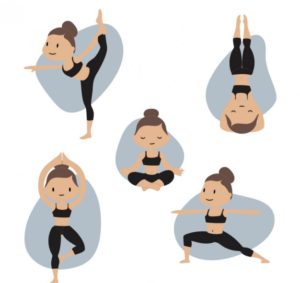 • Helps build Focus
• Helps build Focus
The difference between a good marathon performer and a great one, is the ability to focus and concentrate. The underlying purpose of yoga is to understand and control the power of thoughts. Concentration building exercises are recommended for runners who tend to get distracted easily.
• Breathing
A number of marathon runners train themselves to use breath as a powerful performance tool. As a beginner, a runner might often complain about being out of breath. Hence, cardiovascular fitness must be improved to help enhance performance. The vast range of breathing techniques help build awareness, calm the nerves before a race and reduce adrenaline to help remain focused.
• Stress-free running
Built-up stress in runners causes tension to accumulate in the neck and shoulder areas. Tight shoulders and muscles hinder the performance of runners, and drain vital energy while also inhibiting breathing. Stress arising just before a marathon can be contained through stretching, breathing and relaxation techniques.
• Perfect Posture
Marathon runners should aim at running tall, which means their posture and spine should be upright. A perfect posture allows better breathing and prevents injuries. A basic yoga session will always begin with standing upright to enhance correction of posture.
• Strengthening the Core
All runners are advised to strengthen the core i.e. the abdominal muscles, hip flexors, gluteals and the lower back. Yoga has a range of core strengthening postures like the plank and the triangle pose.
• Optimum Recovery
Yoga defines proper recovery as resting physically and mentally. Restorative stretches, breathing, relaxation and meditation ease out the physical tension, and calm the mind. This facilitates rest and repair for the muscles. A good restorative yoga session also aids better sleep.
Incorporating Yoga in Marathon Training
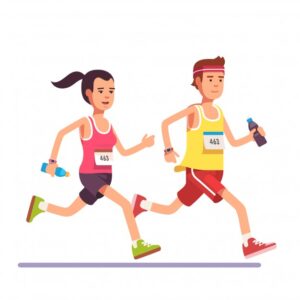 Yoga has become a go-to practice for people from all walks of life, age and fitness level no bar. It is a versatile practice that accommodates all the wants and needs of the body, be it strength training, aiding relaxation, correction of posture or building focus. Restorative yoga is highly recommended for marathon runners, as they train hard. Restoring muscle helps avoid injuries and maintain balance. Intense yoga, such as power yoga, should be avoided while wanting to restore the muscles, to avoid draining the body and depleting the energy levels further. When not training for a marathon, or training at a lower intensity, runners can experiment with fast-moving, dynamic sequences to keep them motivated and interested.
Yoga has become a go-to practice for people from all walks of life, age and fitness level no bar. It is a versatile practice that accommodates all the wants and needs of the body, be it strength training, aiding relaxation, correction of posture or building focus. Restorative yoga is highly recommended for marathon runners, as they train hard. Restoring muscle helps avoid injuries and maintain balance. Intense yoga, such as power yoga, should be avoided while wanting to restore the muscles, to avoid draining the body and depleting the energy levels further. When not training for a marathon, or training at a lower intensity, runners can experiment with fast-moving, dynamic sequences to keep them motivated and interested.
How to begin yoga for marathon runners
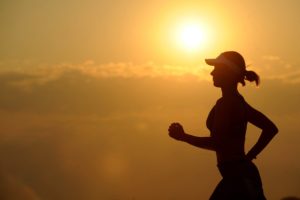 There are many forms of yoga that benefit the mind, body and soul. Yoga is a versatile practice that caters to the wants and needs of every individual. In case of intensive training, it is recommended that runners focus on strength building exercises like Power yoga, and a dynamic blend of exercises that helps build stamina and posture.
There are many forms of yoga that benefit the mind, body and soul. Yoga is a versatile practice that caters to the wants and needs of every individual. In case of intensive training, it is recommended that runners focus on strength building exercises like Power yoga, and a dynamic blend of exercises that helps build stamina and posture.
Hot Yoga
This form of yoga is popular with people who train for marathons and other intense forms of workouts. This multi beneficial style of yoga helps with weight loss and gaining flexibility. Hot yoga sessions are done in the sweltering heat (40 degrees Celsius). This aids stretching. It is essential, however, to stay hydrated at all times.
Ashtanga yoga
This is a strenuous style of yoga that follows the same series of postures as hot yoga. The levels get more advanced with experience. It emphasizes on upper body strength and focuses on a mix of plank and downward dog asanas, to facilitate strengthening of the core and loosening of the hamstrings.
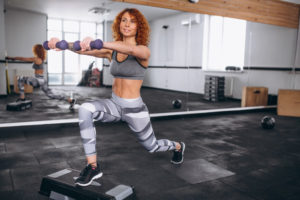 Power yoga
Power yoga
Power yoga helps to build strength using just your own body weight. This helps toughen the body for marathons. Like Ashtanga yoga, Power yoga follows the same path, however, the content changes from time to time.
Vinyasa flow
This dynamic style of yoga flows in a rhythm. It is not too strenuous, and is an ideal choice for runners who feel the need to switch out the intense yoga sessions for a lighter one.
Hatha yoga
Being the most basic style, this form of yoga is slower than the others. With a blend of more static postures, this form focuses more on emotional and mental health. With a blend of breathing exercises, meditation and relaxation asanas, it is a great option to stretch and unwind. This helps in mentally preparing the body for the upcoming intense races.
Iyengar yoga
Iyengar yoga involves holding a pose for longer periods of time, with or without the use of props. It emphasizes on precision and alignment which is beneficial for runners.
Distance runners and athletes in can be susceptible to injury caused by over-training. While training for marathons can be extremely tedious, one should make sure to avoid over-training and overexertion.
Stated below, are a few ways to avoid exertion:
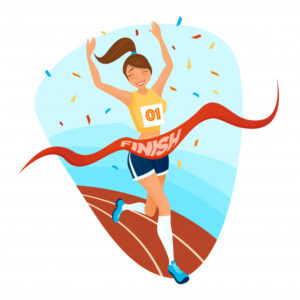
• Make sure to keep at least one rest day a week.
• Take a break from about strenuous exercises for at least 2-3 weeks, of you feel the exhaustion building up.
• Swap your intense workouts for calmer, low intensity ones. Choose cycling and swimming over gym equipment or running losing distances.
• Take time out for a leisurely walk to calm your mind and nerves.
• Opt for Shavasana in the end, which is designed for providing an optimum muscular release. It helps with relaxation so the body begins to release tension.
Do not miss a single article!
Submit your email id to get new articles directly into your email inbox!
- Employee Wellness Programs: They Really Work! - October 21, 2022
- Yoga Teacher Training Standards - November 18, 2021
- Why You Will Never Go Hungry Again - October 25, 2021
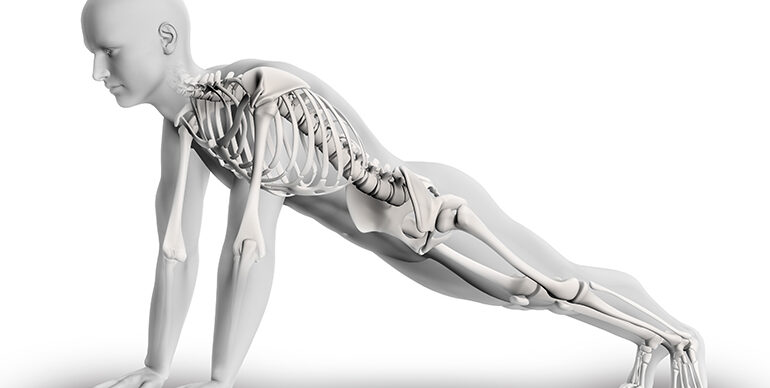
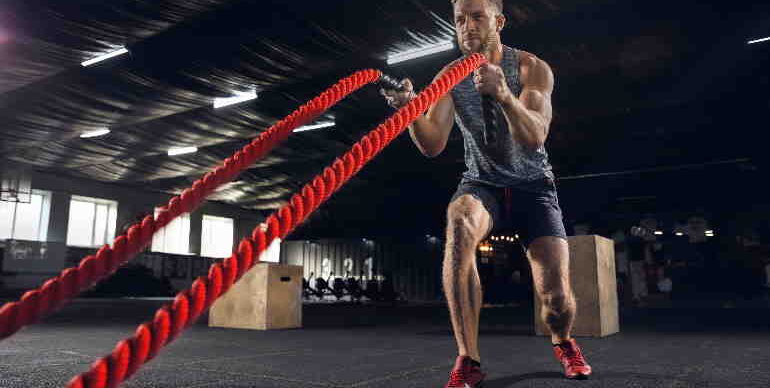
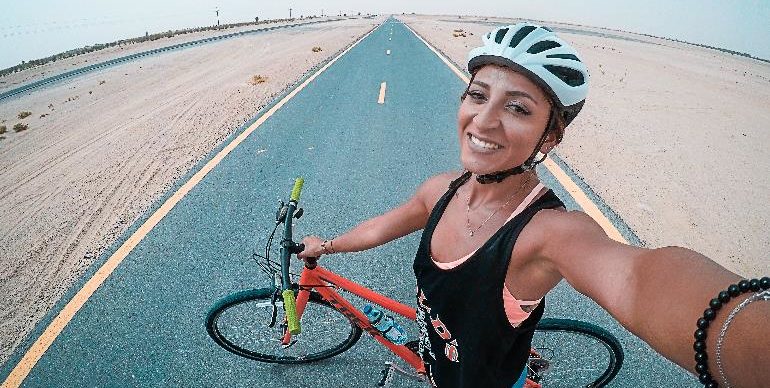
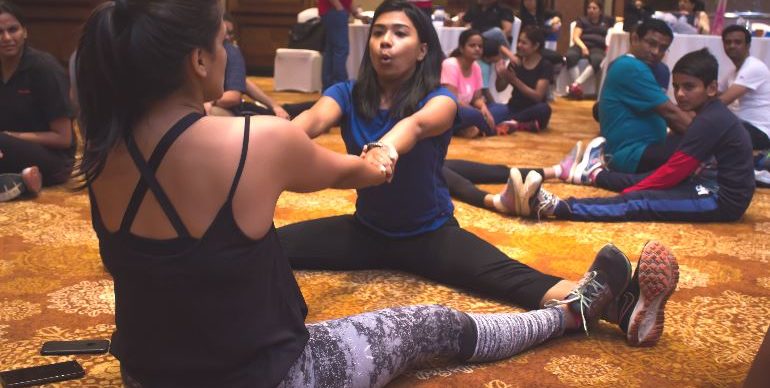
Add Review